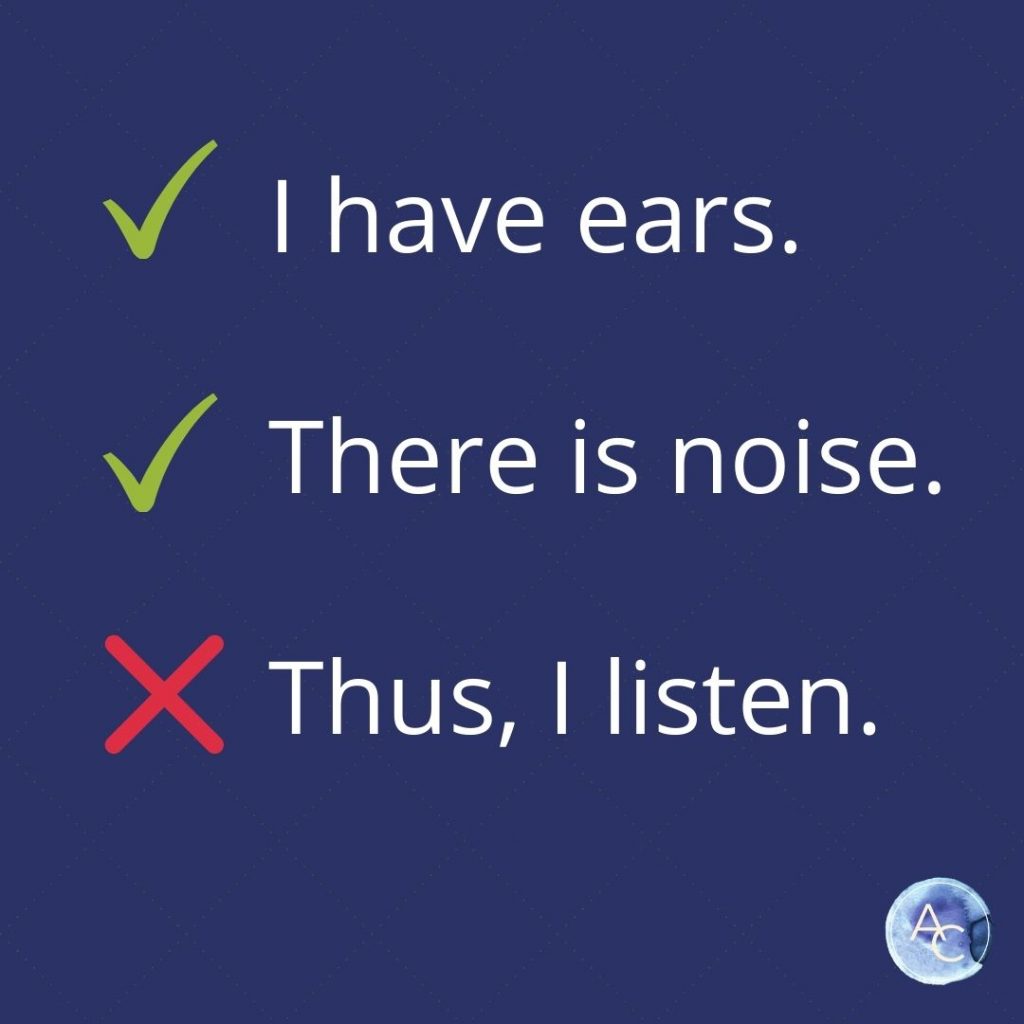How to Become a Loving Listener in Four Steps
Happy Friday to my regular subscribers and all those visiting from my devotion “How to Create a Legacy of Loving Listening.” I’m so happy to hang out with you today!
You’d think with all of the noise in our world that listening would be a natural activity.
I have ears. (check!)
There is noise. (check, check, check!)
Thus, I listen. (Ahem… not so much.)

Maybe we’ve gotten worse at listening because of all the noise. It’s too much. It’s too divisive. It’s completely overwhelming. Instead of listening, we’ve (I’ve) begun to tune out just when it’s essential to tune in, becoming a loving listener.
Because I love to talk but have a hard time listening, I’ve been personally leaning into the problem of listening for several years. Here are 4 things that we must do to become the kind of listener that Abigail modeled for us in Scripture:
Be present. Refocus. Repeat.
I’ve confessed here before, but I’ve been a fake listener for decades. I looked like I was listening, but I was really thinking of the next thing to say. I was formulating responses, coming up with a parallel story of my own experience, or crafting a rebuttal.
None of those activities are actually listening, and I’m learning to break that bad habit through focus. I have to work to be fully present. When I realize that my thoughts have begun to drift, I bring myself back into the moment. Over and over and over again.
Bad habits like not listening when someone is talking can be broken, but it’s hard work. It takes focus and practice. Failure is part of growth, so we can’t give up.
Suspend disbelief and judgement.
I know that some of you are already squirming at the above statement. Hang with me, brothers and sisters! I actually think that this is the biggest problem for Christians.
We’ve largely been taught that we must defend the truth at all costs. (I won’t go into the fact that most of our “truths” turn out to be our opinions. More about that here.) This mindset has damaged the way that we listen. To listen well, we must suspend our disbelief and judgements.
Notice I didn’t say that we have to do away with disbelief and judgement. Instead, I said that we “suspend” them. There’s a time for discernment and God’s Truth, but generally, it’s not in the moment. As someone else is speaking, we need to simply open our hearts to connect.
When we’ve done that, people are often able to receive a different thought or correction later if one’s needed. When we listen initially, though, it’s with the purpose of gaining understanding, not making a point.
Engage your emotions.
When we offer people our full attention, believe their stories without judgement, and feel what they feel, we’ve employed empathy. I believe empathy is the greatest fuel for connection that there is.
For example, the quest for racial equity has become a big part of my journey in the last few years, and these first three steps have helped me to build some beautiful friendships. Now, instead of just practicing my listening to break my bad habits, my emotions are fully engaged with people of color who I have come to love.
Because I’ve listened, I care. I start by caring what others care about, and that leads to greater love for that person. Love makes me a better listener. See how this works? It’s what my friend Cheri calls a “virtuous cycle!”
Remove your need to respond.
Sharing a story that relates to the story that you’ve just heard is a human response. Sometimes, in the right setting, it’s also a display of empathy.
But often (painfully often in my case), it’s just a need to talk. Most experiences, especially suffering, have no equivalent, so we have to very careful how we respond when people share. Usually the ministry of presence is all they need, not our follow-up story.
I’m a word-girl, so having a term that wraps around an idea aids in identifying a problem and creating solutions. A term that I’ve learned lately has helped me be a better listener. The term is “de-centering.” The dictionary defines de-center this way:
“Remove or displace (the individual human subject, such as the author of a text) from a primary place or central role.” (Source)
When I de-center in a conversation, it means that I no longer feel the need to make myself or my experience the focus of or the center of the conversation. I can put the other person and their experiences at the center as we talk. That’s been revolutionary for me, and it’s sounds like the way Jesus would listen, right? He who is the center of everything (Colossians 1) gave up His position and gave sacrificially (Philippians 2). When we do the same, we look more like our Savior.
Becoming a loving listener isn’t an easy task, but we can practice these steps and become better.
Want to keep receiving information from me a couple times a month? I promise that I won’t start telling you what to think. Instead, I’ll be digging into how to think about our culture’s issues based on Scripture, just like I did in today’s devotion.
Please enter your email address below. You’ll also get a copy of “The Anatomy of a Tender Heart.”
I’ve written a whole message about the story of Abigail, If the message description below sounds like something your small group or church group needs, I’d love to do a virtual or in-person event with you! Click here to get more information about my speaking.
Becoming a Woman with a Tender Heart and Strong Voice
How do godly women speak up in godly ways? In today’s divided world, the noisy extremes make it appealing to seek comfort in silence. But God’s given each of us a place of influence where our voice is crucial. It might be your home, your neighborhood, your workplace, or even your wider community. We can combine a beautifully tender heart with a strong voice to make a difference. Using the story of Abigail from I Samuel 25, Amy will show you how to:
- Listen for details that others might miss so that you’re a solution-creator instead of a trouble-maker.
- Engage your feelings in a way that leads to discernment, not disaster.
- Do good that brings peace to the problems of your corner of the world.
- Speak into the heat of conflict with confidence and wisdom, bringing resolution and restoration.


Dear Amy, After I read your devotion and then your blog, I then did my hard copy devotionals. As i was looking up scriptures that were referenced in my devotionals, I realized that I am guilty of not just listening well at times to people face to face or on the phone, I am doing the same thing to God at times when He is speaking to me through His Word. I feel God used your words today to help me to work on being a better listener to Him. Thank you !!
Blessings,
Su
Su, I wrote about listening out of my own struggle, for sure. I’m so glad we’re growing together!
Great devotional/article! Thank you!